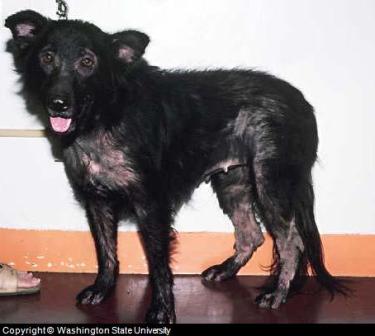Best Advice To Selecting Yeast Infections In Dogs
Best Advice To Selecting Yeast Infections In Dogs
Blog Article
Turmeric (Curcumin) Is The Natural Ingredient In Turmeric Helps With Joint Health Of Dogs And Cats.
Turmeric and curcumin, in particular have been found to benefit joint health. Check out how turmeric can enhance joint health for your pet:
Anti-inflammatory properties
Reduced Inflammation
Effect: Curcumin, the active ingredient in turmeric, has strong anti-inflammatory properties. It stifles the enzymes and the molecules that trigger inflammation.
Curcumin is a powerful anti-inflammatory agent that can help reduce inflammation and pain in joints. It also helps with other joint problems like arthritis.
Antioxidant Effects
Oxidative Stress:
Curcumin is an antioxidant. It neutralizes free radicals that could cause cellular damage or inflammation.
Benefits Reduced joint tissue damage through the reduction of oxidative strain can delay the progression of joint disease and help maintain joint health.
Pain Relief
Natural Painkiller:
Curcumin is known for its ability to lessen pain by modulating the pain pathways.
Benefits: Natural pain relief for pets can assist them in being more active.
Cartilage Protection
Inhibition of Cartilage Breakdown:
Curcumin works by inhibiting enzymes that cause cartilage to breakdown.
Benefits: By protecting cartilage against degradation, you can maintain the function and integrity of joints in pets that suffer from joint pain.
Immune System Modulation
Balanced Immune Reaction:
Function: Curcumin promotes an immune system that is balanced and helps to regulate inflammation.
Benefits: A balanced immune response can help prevent excessive inflammation and further joint damage, contributing to overall joint well-being.
Joint Health Overall Benefits
Increased mobility: Turmeric decreases inflammation and pain, while also preserving cartilage. This may help animals with joint issues improve their mobility.
Pets that are less painful and have more comfortable movement are likely to have a greater level of participation and exercise, which results in a greater quality of life.
Utilization and Recommendations
Dosage and Administration: The appropriate dosage of turmeric or curcumin for pets is determined by their size, weight, and specific health needs. It is essential to follow the recommendations of a veterinarian or the product label instructions. To increase the absorption of curcumin, it is often infused with black pepper extract.
Turmeric supplements are available for pets in a variety of forms, including capsules, chews and powders. Choosing a high-quality, pet-specific product will guarantee the safety and effectiveness.
Although turmeric is generally thought to be safe, high doses can cause digestive upsets in some animals. If you start with a lower dosage and gradually increasing it and gradually, you can reduce the adverse effects. You should also monitor your pet's health for negative reactions such as vomiting or diarrhea.
Conclusion
Turmeric and curcumin in particular which is the active ingredient, are beneficial for joints' health in both dogs and cats. Turmeric's anti-inflammatory and pain-reducing properties can reduce joint pain and inflammation. They also protect cartilage and improve joint function. Regular intake of turmeric supplements can benefit pets with joint pain and inflammation, allowing them to move more easily. View the top rated yeast infections in dogs for blog tips including pet kidney supplements, pet wellbeing cushings care kit, pet supplements for pets with mites, pet supplements for rehomed pets, pet hyaluronic acid supplements, pet supplements for pets with food sensitivities, pet supplements for pets with grooming anxiety, cushings disease alternative treatment and more.
Coconut Oil Helps With Allergies In Dogs And Cats.
Coconut oil is a safe cure that can help manage skin allergies in dogs as well as cats because of its moisturizing, anti-inflammatory, antimicrobial and healing properties. Here are some ways that coconut oil can benefit pets suffering from skin allergy:
Moisturizing Properties
Skin Hydration
Coconut oil is moisturizing for the skin.
Benefits: It offers relief from itching and helps to build a healthier skin barrier. This is particularly helpful for pets suffering from allergic dermatitis which often results in dry and itchy patches on the skin.
Anti-inflammatory Effects
Reduce Inflammation
Coconut oil is a source of a chemical called lauric Acid. This is an anti-inflammatory.
Applying coconut oil on damaged skin can ease the redness, swelling and irritation. This can provide an important relief for pets who suffer from allergic reactions.
Antimicrobial activity
Fighting Infections
The function: Coconut oil has antimicrobial properties, including lauric and caprylic acids, that help fight bacteria as well as viruses, fungi and many other microorganisms.
Coconut oil is a great source of benefits. It can treat or treat secondary skin infections that are caused by scratching and allergies. It can aid in maintaining skin health, and prevent any further problems.
Healing and soothing
Promoting Healing
The function: Coconut oil supports the natural healing process of the skin.
Benefits The product helps to heal minor cuts, abrasions or hot spots that are result of excessive scratching. This can help to speed up the healing of damaged skin caused by allergies.
Barrier Protection
Enhancing Skin Barrier:
Coconut oil helps in strengthening the skin's barrier.
Benefits: A strong skin barrier helps protect against environmental allergens and irritants. This decreases the chance of allergic reactions or skin infections.
Dietary Supplements
Internal Benefits
Coconut oil is also available as a nutritional supplement.
Benefits: It assists in helping to maintain the health of your skin from the inside. Its antimicrobial qualities and anti-inflammatory effects can help to reduce systemic inflammatory responses and improve the immune system of pets. This may result in a decrease in the incidence and severity of skin allergies.
Use and considerations
Topical application: Apply coconut oil directly on the affected part of the skin. Massage gently to ensure that it's absorbed. It can be done either once or twice daily, depending on the severity of the skin problem.
Coconut oil added to pet food is a natural supplement that can be taken orally. A typical dose is one teaspoon per ten pounds of weight. It's best to start slowly, and then increase the dosage to prevent stomach upset.
The quality of Coconut Oil: Use high-quality organic, pure coconut oil to ensure that it is free from additives and preservatives.
Be on the lookout for reactions. While coconut oil is generally considered safe for pets, make sure to watch for any reactions.
Conclusion
Coconut oil can be an all-natural remedy for skin allergies that affect both cats and dogs. Its healing and antimicrobial properties, in addition to its anti-inflammatory and moisturizing properties, can soothe and protect the skin, lessen itching and inflammation, as well as promote skin health. Regular use of coconut oil, whether applied topically and as a dietary supplement, can provide significant relief from allergy symptoms and enhance the quality of life of pets suffering from skin allergies. Have a look at the recommended probiotics for dogs for more examples including pet echinacea supplements, pet supplements for pets with fear of tv and radio, pet supplements for puppies and kittens, pet supplements for pets with seizures, pet supplements for pets with fear of ear cleaning, pet hip supplements, petz park, pet supplements for pets with fear of aging and more.
Probiotics To Treat Cat And Dog Yeast Infections?
Through promoting healthy microorganism balance within the gut and also on the skin's surface Probiotics can be beneficial in managing yeast infections in cats and dogs. Probiotics can assist with yeast infections:
Restoring the Balance of Microbial Activity
Balancing Gut Flora:
Function: Beneficial bacteria help to maintain the balance of microorganisms in the gastrointestinal tract.
Benefits: A healthy microbiome in the gut supports immune function, and prevents the overgrowth of yeast (such as Candida) which could cause infection. This indirectly helps to control the yeast infection throughout the body.
Competition with pathogens
Competition with harmful microorganisms
Function Probiotics compete for resources and space pathogenic microorganisms (causing diseases) such as yeast.
Benefits. By outnumbering or out-competing other pathogens, such as yeast, probiotics are able to decrease their potential to cause diseases and can maintain a healthier microbial climate.
Modulation of the Immune Response
Immune System Enhancement:
Function: Probiotics affect the function and production of chemicals that regulate the immune system.
Benefits: A stronger immune response can aid the body better fight off yeast infections, and decrease their frequency.
Antimicrobial Substances Manufacturing
Antimicrobial Factors - Production
Function The purpose of certain strains of bacterium (such Bacteriocins) possess antimicrobial properties and can be used to fight yeast and other pathogens.
Benefits: These antimicrobial elements can help directly inhibit the growth of yeast, which contributes to the management of yeast infections.
Reduce inflammation
Anti-inflammatory Effects:
Function: There is evidence that probiotics reduce inflammation, that could be related to yeast infections.
Benefits In reducing swelling, probiotics could reduce symptoms associated with yeast infections like itching, redness, and pain.
Support for Skin Health
Maintaining Skin Barrier Function:
Function helps maintain the integrity of the skin barrier.
Benefits: Healthy skin barriers are less vulnerable than ones that are unhealthy to fungus-related diseases. They stop yeasts, as well as other pathogens from entering the skin and infecting it.
Use and Considerations
Probiotics Types: Search for probiotics with strains that have been proven to be beneficial for skin health, and also fight yeast infections. They include Lactobacillus species as well as Bifidobacterium.
Probiotics are available in various forms, including powders, capsules, and chews. Probiotics that are applied to the skin can be helpful for localized skin problems.
Duration: Probiotics should be taken for a long duration to prevent yeast infections and maintain the microbial balance.
Consultation with Veterinarians Always consult a veterinarian when you are beginning a probiotic supplementation. They can recommend the appropriate probiotic strains and dosages for your pet based on your specific health needs.
Conclusion
Probiotics can aid in the management of yeast infections that affect dogs and cats. Probiotics can improve the overall health of your skin and aid to prevent yeast infections by improving immune function, promoting healthy microbial imbalance, and lessening irritation. When probiotics are used in conjunction to a comprehensive plan of treatment they can improve the overall health and comfort of pets who suffer from yeast illnesses. View the top rated read this for blog tips including pet ear supplements, pet supplements for pets with epilepsy, pet supplements for pets with hair loss, pet supplements for pets with fireworks phobia, pet bromelain supplements, pet supplements for pets with separation anxiety, pet glucosamine supplements, mcdowells herbal and more.